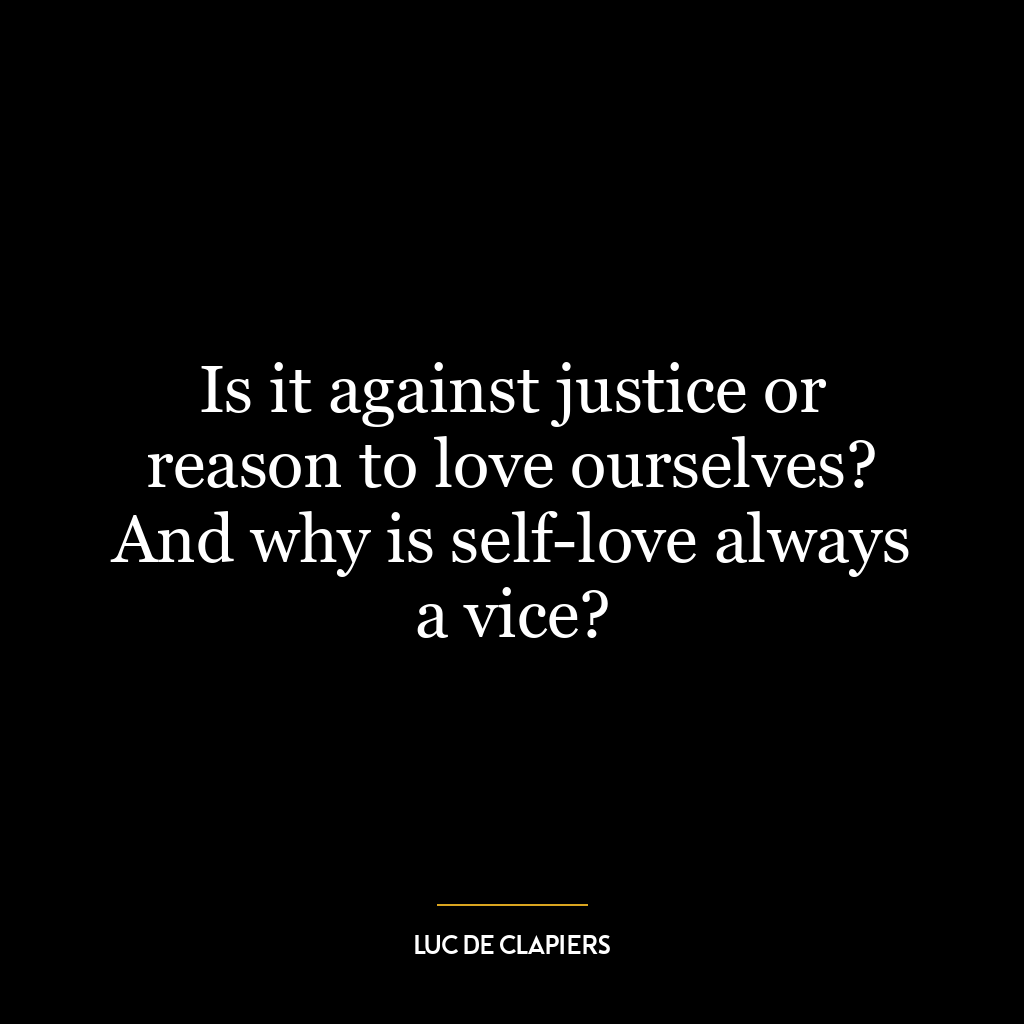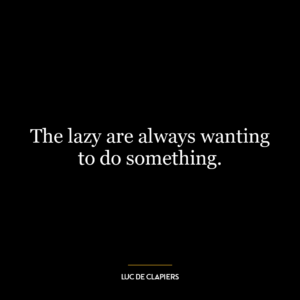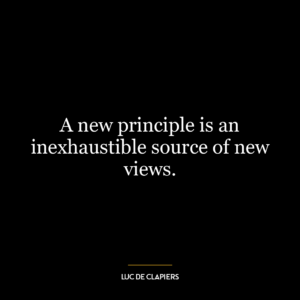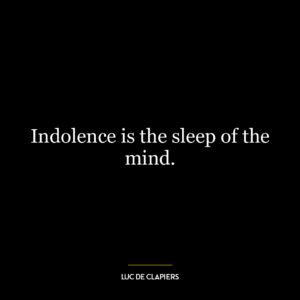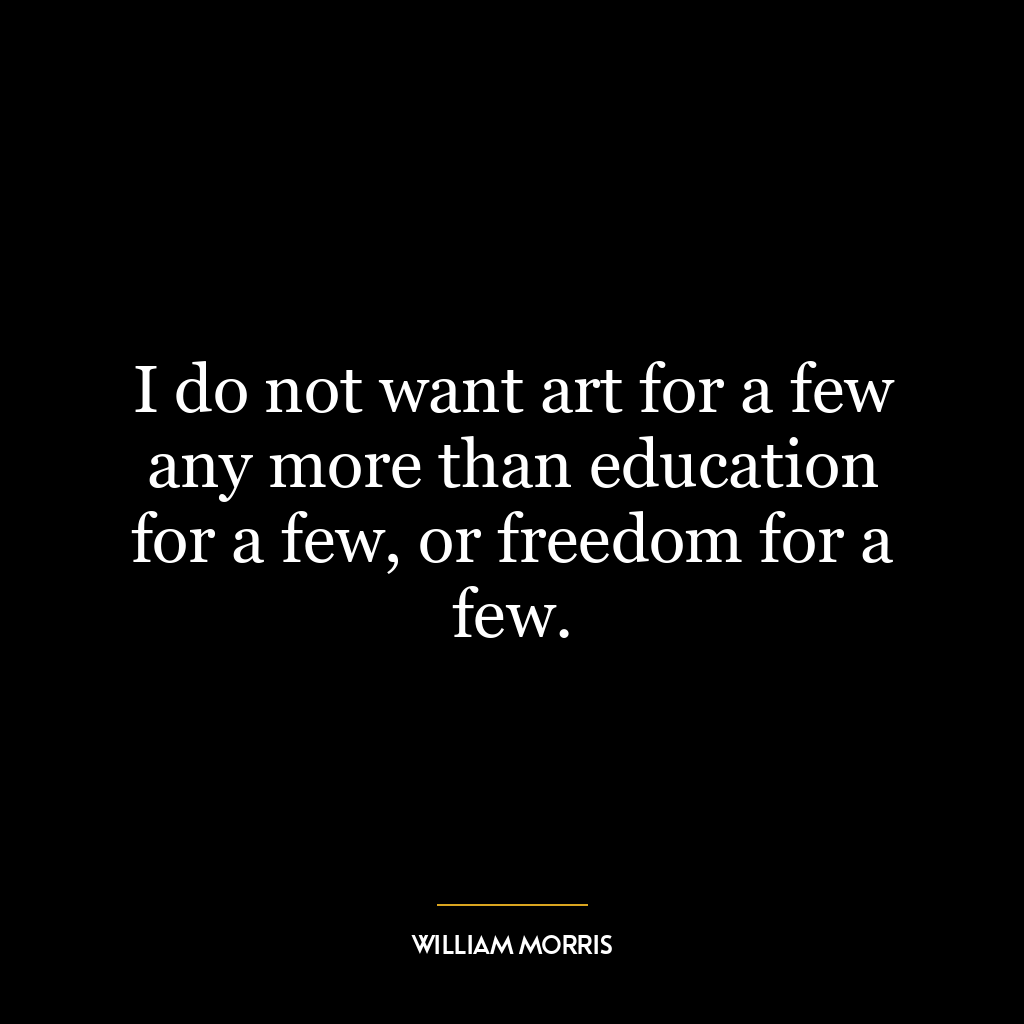This quote is essentially questioning the morality and rationality of self-love, and asserting that self-love is always a vice.
The first part of the quote asks whether it’s against justice or reason to love ourselves. Justice here could be interpreted as fairness or morality, while reason could be interpreted as logic or rationality. The quote is asking if it’s unfair or illogical to prioritize our own needs, desires, and well-being over those of others.
The second part of the quote states that self-love is always a vice. A vice is typically defined as an immoral or harmful behavior. This statement is suggesting that self-love, or prioritizing our own needs and desires, is always harmful or immoral.
However, this idea can be seen as controversial, especially in today’s world where self-love and self-care are often promoted as essential aspects of mental health and personal development. The importance of self-love lies in the belief that we must first take care of ourselves before we can effectively take care of others. It’s the idea behind the saying, "You can’t pour from an empty cup."
On the other hand, an excessive amount of self-love can lead to narcissism, which is generally seen as a negative trait. Narcissism involves excessive self-interest and a lack of empathy for others, which can lead to harmful behaviors.
In terms of personal development, this quote could be interpreted as a reminder to maintain a balance between self-love and consideration for others. It’s important to take care of ourselves and prioritize our own needs, but not at the expense of others. It’s also important to remember that our actions and behaviors can have an impact on those around us, so we should strive to be mindful of this.
In conclusion, while the quote asserts that self-love is always a vice, it’s perhaps more accurate to say that an excessive or harmful amount of self-love can be a vice. A healthy amount of self-love, on the other hand, can be beneficial for both ourselves and those around us.

